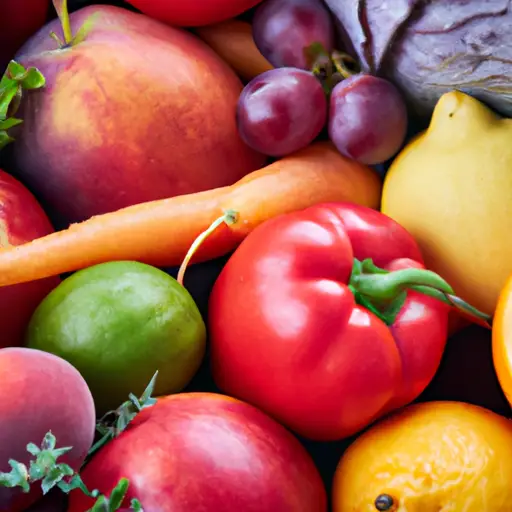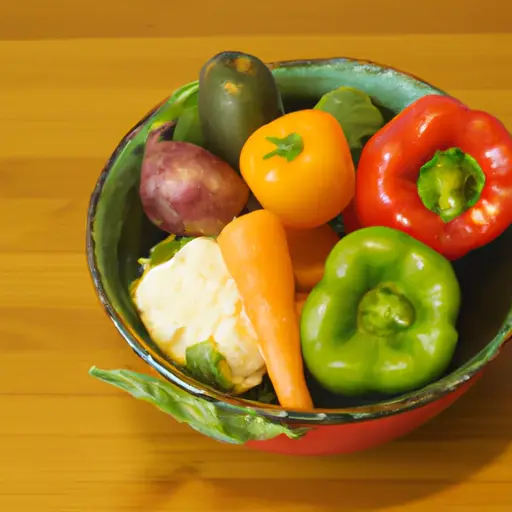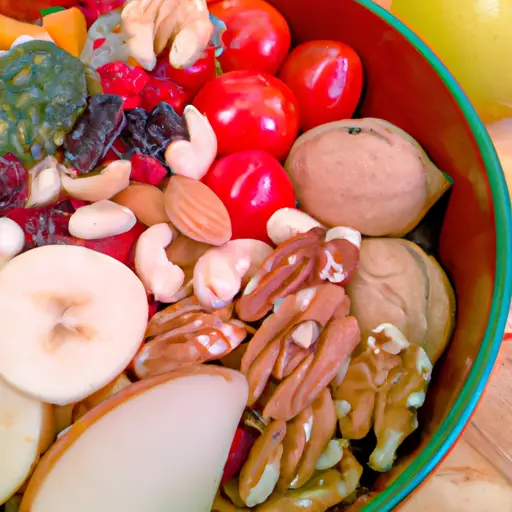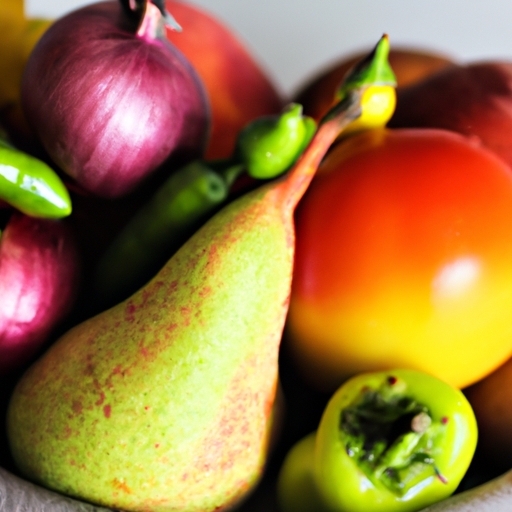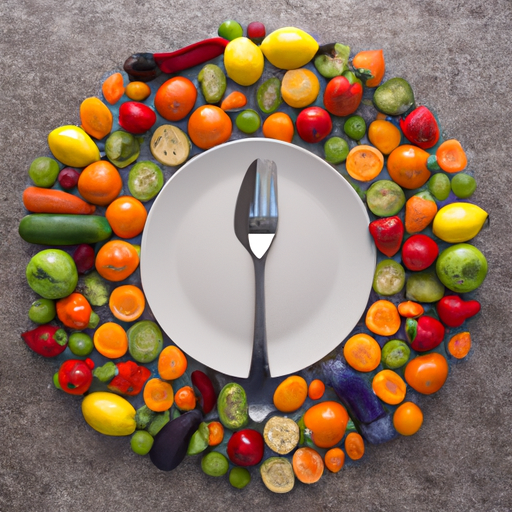Organic Food What You Need to Know
Organic food is increasingly becoming a popular choice amongst health-conscious and environmentally-conscious consumers. Put simply, organic foods are those that are grown without artificial fertilizers and other chemicals.
It’s no wonder why so many people are switching to organic foods: not only can it be more nutritious than its non-organic counterparts, but it doesn’t contain any of the potentially harmful chemicals used in conventionally grown produce.
It’s also worth noting that there are some drawbacks associated with buying organic food. Namely, these tend to be more expensive than conventional alternatives, and may not always be available in your local area.
That said, the pros and cons for going organic are worth considering, especially when you factor in the big picture of health and environmental benefits.
The Benefits of Eating Organic Food
Munching on some organic grub can be one of the most beneficial ways to stay healthy. I’m talkin’ about fewer toxins and a better quality of food. But, don’t just take my word for it! Let’s break down what makes organic foods so great.
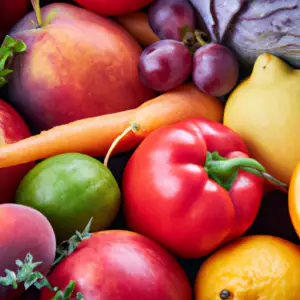
First off, there are certain health benefits you get with organic foods that you don’t get with regular produce. For starters, they’re not loaded up with chemical contaminants, like pesticides or hormones. This means you can be sure that what you’re putting in your body is as natural as possible. Plus, organically grown foods often contain higher levels of vitamins and minerals.
Then there’s the environmental benefits. Growing organic products means you’re doing something good for Mother Nature. That’s because it requires less water, energy and fertilizer than conventional farming. It’s an eco-friendly way to reduce waste and air pollution. And, since organic farms help maintain a healthier soil balance by promoting biodiversity, it’s important for maintaining a thriving ecosystem.
Of course, there are some drawbacks too—which might make you think twice before plunking down your hard earned cash. The main drawback is that organic foods can be more expensive than regular store-bought fare. And if you live in a rural area, the selection might be sparse. But if you don’t mind paying a bit more green, you’ll be reaping the rewards in no time.
Conclusion
Overall, there are plenty of reasons why eating organically grown foods is an awesome idea. Not only are they healthier, but they’re also better for the environment. Sure, it might cost a bit more and be hard to find in some places. But if you can afford it and get your hands on it, you’ll be glad you made the switch.
Drawbacks of Organic Food
We all know that organic food is great, but let’s not kid ourselves – it ain’t perfect! There are some drawbacks that come with going organic. So, if you’re thinking about making the switch, then here’s a few things you ought to keep in mind.
First up: cost. Organic food can be expensive as heck. Now, prices have been coming down in recent years, but it’ll still dent your wallet if you’re trying to stick with an organic diet. And if you’re looking for organics at your local market, don’t be surprised if it costs a bit more than their non-organic counterparts.
The other major downside of organic food is availability. You might find yourself scouring the shelves of natural foods stores and specialty grocers just to get what you want. Shopping online could be an option, too – but that can add up in shipping costs! Bottom line: you may have to do some extra legwork to track down organic groceries.
Conclusion
Organic food is no longer just a trend; it’s here to stay. While there are definitely drawbacks – it can be more expensive and not as widely available – there are also many benefits. Eating organic can improve your health, plus help the environment too.
At the end of the day, it comes down to what you feel comfortable with. If you’re gonna go organic, great – but don’t feel pressure either way. In the end, we all just gotta do our best and make sure we’re eating healthy.
And just remember: whether you eat organic or not, it’s always best to shop local when possible.
Organic Food FAQs
Is organic food really better for you?
Well, the truth about organic food is that it’s complicated. It really comes down to what you prioritize. Some people are all about organic for environmental reasons. Others are focused on the health benefits, but it’s unclear if that’s really a factor. Ultimately, you have to weigh the pros and cons for yourself and decide what matters most to you.
On one hand, organic foods are often grown without the use of chemicals, pesticides, and other additives, so they’re often seen as better for the environment. And they often have a milder taste than non-organic foods. However, the jury is still out on whether organic foods are nutritionally superior.
On the other hand, organic food can be more expensive, and it won’t stay fresh as long as non-organic food. So if you’re looking for the most bang for your buck, you might want to go with non-organic.
In the end, it’s a personal decision. If it’s important to you to eat organic, then by all means, go for it! If not, then you can save yourself some money and still enjoy a healthy diet without the extra cost.
What are the 3 disadvantages of organic food?
As a journalist, I’ve heard a lot of stories about organic food. Everyone seems to have an opinion on it, but the truth isn’t so black-and-white. So, if you’re wondering what the disadvantages are of organic food, here’s what I’ve learned over the years.
Firstly, organic food can be expensive. It’s not easy for many people to fit the higher price tag into their budget, especially if they’re choosing to buy organic for every item in their grocery store. Secondly, it can be hard to come by in some areas. Even if you’re willing to pay extra, you may not have access to the organic items you’re looking for. Lastly, organic food doesn’t always taste better. This can be a major factor for people choosing food, and if organic doesn’t taste great, it’s hard to justify the higher price tag.
So, there you have it. Sure, organic food may come with some benefits, but it’s not always the perfect option. It’s up to each person to decide what’s best for their own lifestyle and budget.
Is organic food Really Safe?
Yes, organic food is really safe! As someone who has studied this topic for a long time, I can tell you that organic food is just as safe, if not safer, than conventionally produced food. Organic food is grown and processed without the use of synthetic fertilizers, pesticides, antibiotics, and hormones, and is overseen carefully by government standards. It may cost a little more than conventional food, but the benefits in terms of health, nutrition, and taste are undeniable.
Organic food is also grown in ways that protect the environment, reducing runoff of toxic byproducts and fertilizers, preserving wildlife, and helping to sustain soil fertility. Plus, organic food just tastes better. It’s fresher, with more intense flavors that are far superior to the blandness of conventionally grown food.
In my opinion, the benefits of organic food far outweigh any risks. It’s healthier, more sustainable, and more delicious. So, if you want to avoid chemicals, support sustainable farming practices, and enjoy some great-tasting food, then organic is the way to go!
